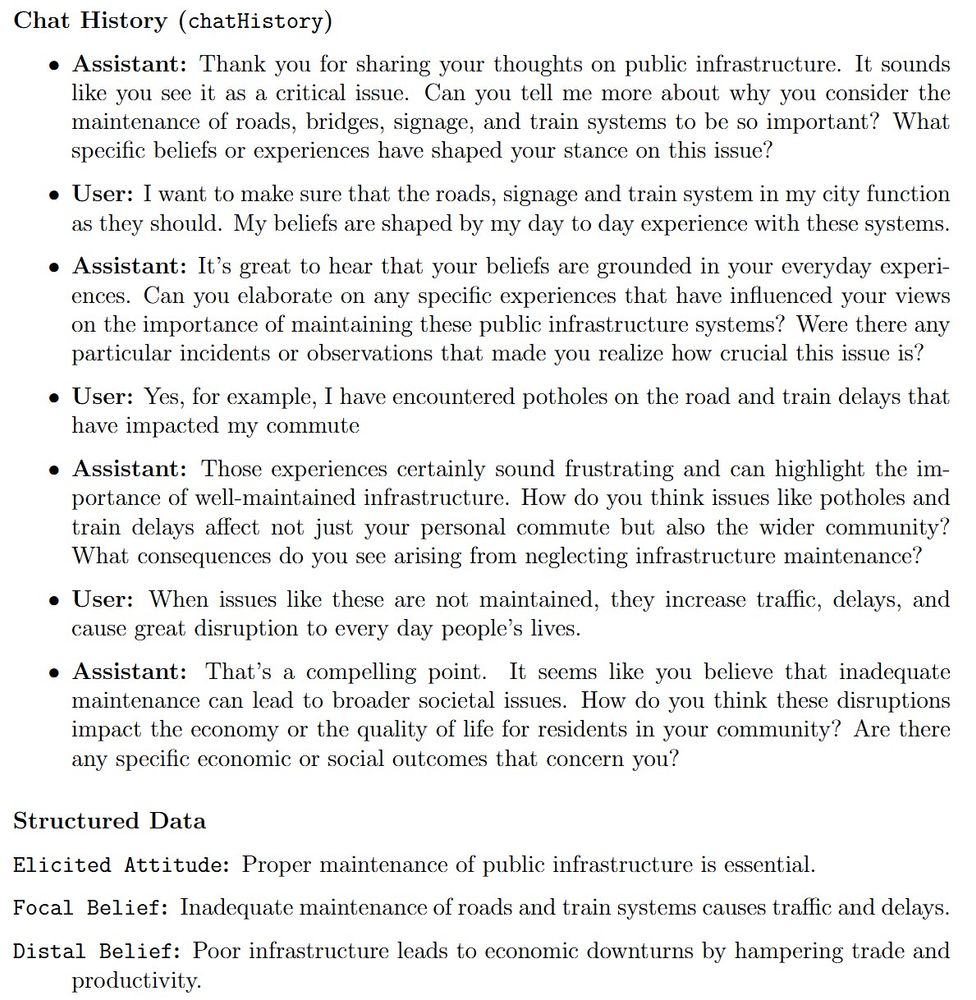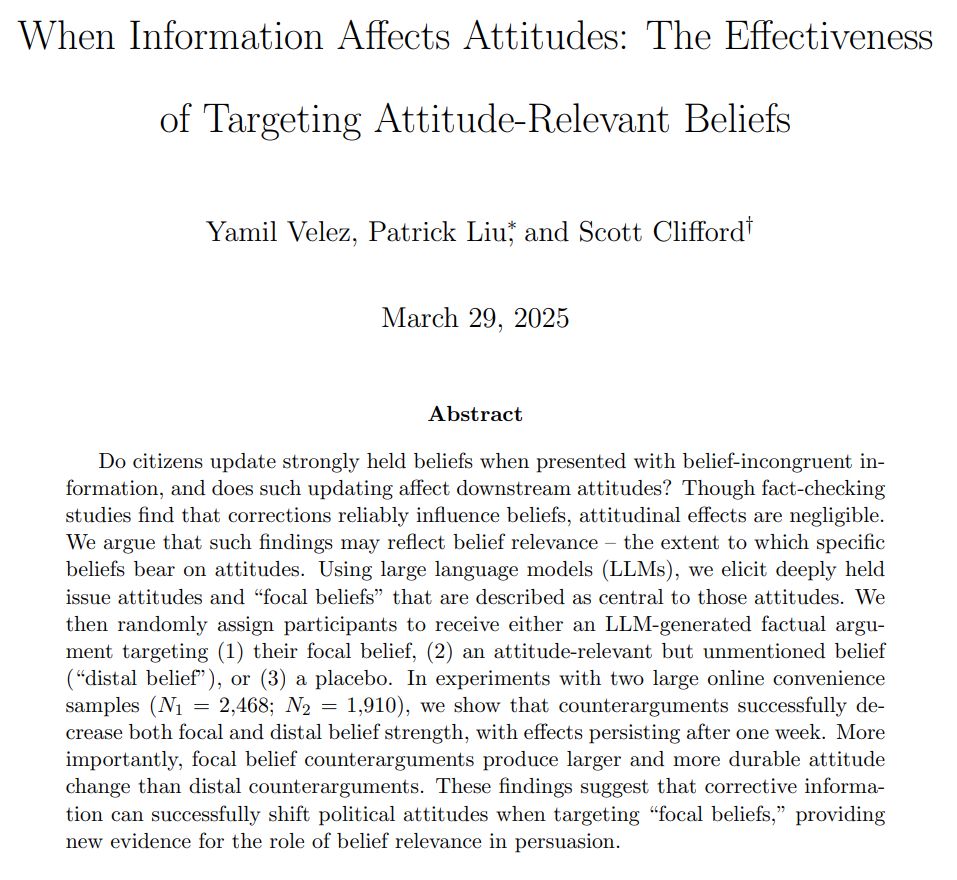Patrick Liu
@patrickpliu.bsky.social
Columbia Political Science | PhD Student
Ex: Respondent said they care about public infrastructure.
In the same wave, they held the following convo with an AI chatbot. After GPT synthesized a summary attitude, focal belief, and distal belief, they saw treatment/placebo text and answered pre- and post-treatment Qs.
In the same wave, they held the following convo with an AI chatbot. After GPT synthesized a summary attitude, focal belief, and distal belief, they saw treatment/placebo text and answered pre- and post-treatment Qs.

April 2, 2025 at 1:04 PM
Ex: Respondent said they care about public infrastructure.
In the same wave, they held the following convo with an AI chatbot. After GPT synthesized a summary attitude, focal belief, and distal belief, they saw treatment/placebo text and answered pre- and post-treatment Qs.
In the same wave, they held the following convo with an AI chatbot. After GPT synthesized a summary attitude, focal belief, and distal belief, they saw treatment/placebo text and answered pre- and post-treatment Qs.
🧵 Why do facts often change beliefs but not attitudes?
In a new WP with @yamilrvelez.bsky.social and @scottclifford.bsky.social, we caution against interpreting this as rigidity or motivated reasoning. Often, the beliefs *relevant* to people’s attitudes are not what researchers expect.
In a new WP with @yamilrvelez.bsky.social and @scottclifford.bsky.social, we caution against interpreting this as rigidity or motivated reasoning. Often, the beliefs *relevant* to people’s attitudes are not what researchers expect.

April 2, 2025 at 1:04 PM
🧵 Why do facts often change beliefs but not attitudes?
In a new WP with @yamilrvelez.bsky.social and @scottclifford.bsky.social, we caution against interpreting this as rigidity or motivated reasoning. Often, the beliefs *relevant* to people’s attitudes are not what researchers expect.
In a new WP with @yamilrvelez.bsky.social and @scottclifford.bsky.social, we caution against interpreting this as rigidity or motivated reasoning. Often, the beliefs *relevant* to people’s attitudes are not what researchers expect.

